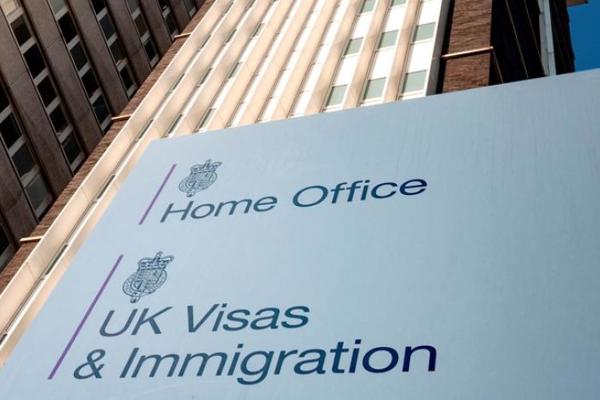Should a person who has lived in the UK for their entire life, speaks only English, doesn’t know how to jump a queue and eats mainly Marmite with the occasional Pot Noodle, but who marries someone from outside Europe, be required to move to that person’s country if they want to live together?
If the couple do not earn at least £18,600 per year, then the Government’s answer to this question is a clear, resounding “Yes”. Indeed, for couples with children who are not British this figure rises significantly; to £22,400 for couples with one such child and by another £2,400 per additional young member of the family. Alternatively, couples can meet the rules by showing they possess a certain amount in cash savings, but the amounts required are well beyond the reach of most couples; a couple with no income at all would need to show at least £62,500 in the bank.
These new rules came into force in July 2012. Before then, spouses and partners only had to show that they could “maintain” themselves in the UK without resorting to benefits or becoming destitute. The aim, common to many immigration systems around the world, was to ensure that people did not enter the country and become a drain on public funds. But the current regime goes much further than that; in fact, an estimated 49% of the workforce in Scotland would now be unable to have a foreign spouse join them in the country should they marry someone from outside the EEA, including, for example, many nurses and soldiers. The Home Office’s recommendation to these individuals is that, if they truly want to live together, they move to their spouse’s country of origin instead; unless there are “insurmountable obstacles” to such a relocation.
But just how “insurmountable” does an obstacle have to be before it is considered grave enough to block any chance of two spouses continuing their life together abroad? And do those who don’t meet the financial rules and who technically could, albeit at significant hardship, relocate stand any chance at all of settling together in the UK? These are the kinds of questions that have troubled the courts since practically the very start of the new, tougher regime, a year and a half ago.
On the Government’s part, the phrase “insurmountable obstacles” tends to be interpreted very strictly indeed. One case from January last year, the case of Izuazu, concerned a British citizen who had lived in the UK for 23 years, who suffered from diabetes which was being treated by the health services in the UK, and whose daughter lived here. He married a woman from Nigeria, but the couple could not bring themselves within the requirements of the Immigration Rules. The Home Office had decided that, if the couple wanted to be together, there was no insurmountable impediment to the gentleman moving to Nigeria, despite the potential increased difficulties in treating his diabetes, the distance that would be placed between him and his daughter, and the cutting of ties to the life he had built up over the previous 23 years.
In that case, not only did the couple fail to meet the financial rules, but the lady in question also had a poor immigration history, having used forged documents in order to work illegally while on a visitor visa, and having overstayed her visa. But couples in all sorts of different situations have been caught by the rules. For example, a British/non-European couple with two children in at school in the UK, earning £23,000 per year (and therefore, if the children were not British citizens, failing to meet the financial rules) would be unlikely to be able to show “insurmountable obstacles” to relocating to the non-European partner’s country according to the Home Office definition, and so would be required to leave the UK in order to be together. The Home Office guidance shows no mercy to the kind of person described in the first paragraph; British citizens who have lived in the UK for their whole lives and who speak only English are regularly required to move abroad.
Fortunately for many couples, the requirement to show “insurmountable obstacles” to living together abroad has not been held to be the end of the story by the courts. The reason for this is that the Human Rights Act protects a person’s right to a family life. This right is by no means unrestricted, contrary to claims often heard in the press, and the Government is fully entitled to put restrictions on immigration and therefore interfere with people’s family lives; but it can only do so in a manner which is “proportionate” to the aim it is pursuing. Is requiring people who cannot meet the rules to live abroad unless they can show insurmountable obstacles to doing so a proportionate interference with their rights?
So far, the courts' answer has been a qualified “no”. The courts have found cases where a couple who cannot meet the rules and who cannot show “insurmountable obstacles” to relocation, and have still decided that it would not be “reasonable” to force the couple to move. This is a less strict test for these couples to meet – they do not need to show that it would be impossible to move to the other country, merely that it would be unjustifiably harsh.
But the legal landscape remains far from clear, and the wrangling between all parties continues as to how exactly phrases such as “insurmountable obstacles” should be defined and what the role of the Human Rights Act’s protection of family life should be. New cases are decided regularly, and the recent judgement in Gulshan mentioned above, seemed to throw further confusion on the issues. In what could be seen as a far from straightforward take on the English language, the judge in that case interpreted the law as holding that, “’insurmountable obstacles’… are not obstacles which are impossible to surmount”. If this is not the case, then it is difficult to see what is so “insurmountable” about them.
The battle looks set to continue to rage between the Government and mixed British and non-European couples (at least, those who do not earn money at the Government's desired level), with neither side showing much appetite for backing down. The Government may land a strong blow in its favour with its new Immigration Bill should it come into force (something which looks all but certain). The new Act will redefine how courts consider the right to a family life, enshrined by the Human Rights Act, by making sure judges are in line with the Government's view. But the determination of families caught by the rules should not be underestimated, and instead of simply giving up on being together it may be that spouses and partners launch a new raft of challenges.
Meanwhile, families continue to be divided by restrictive rules which separate husbands, wives and children. If the Home Office gets its way, more and more British citizens who marry foreign nationals could be enjoying their Marmite elsewhere.


